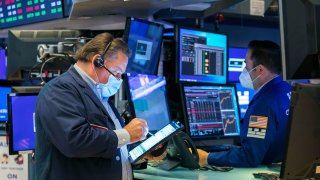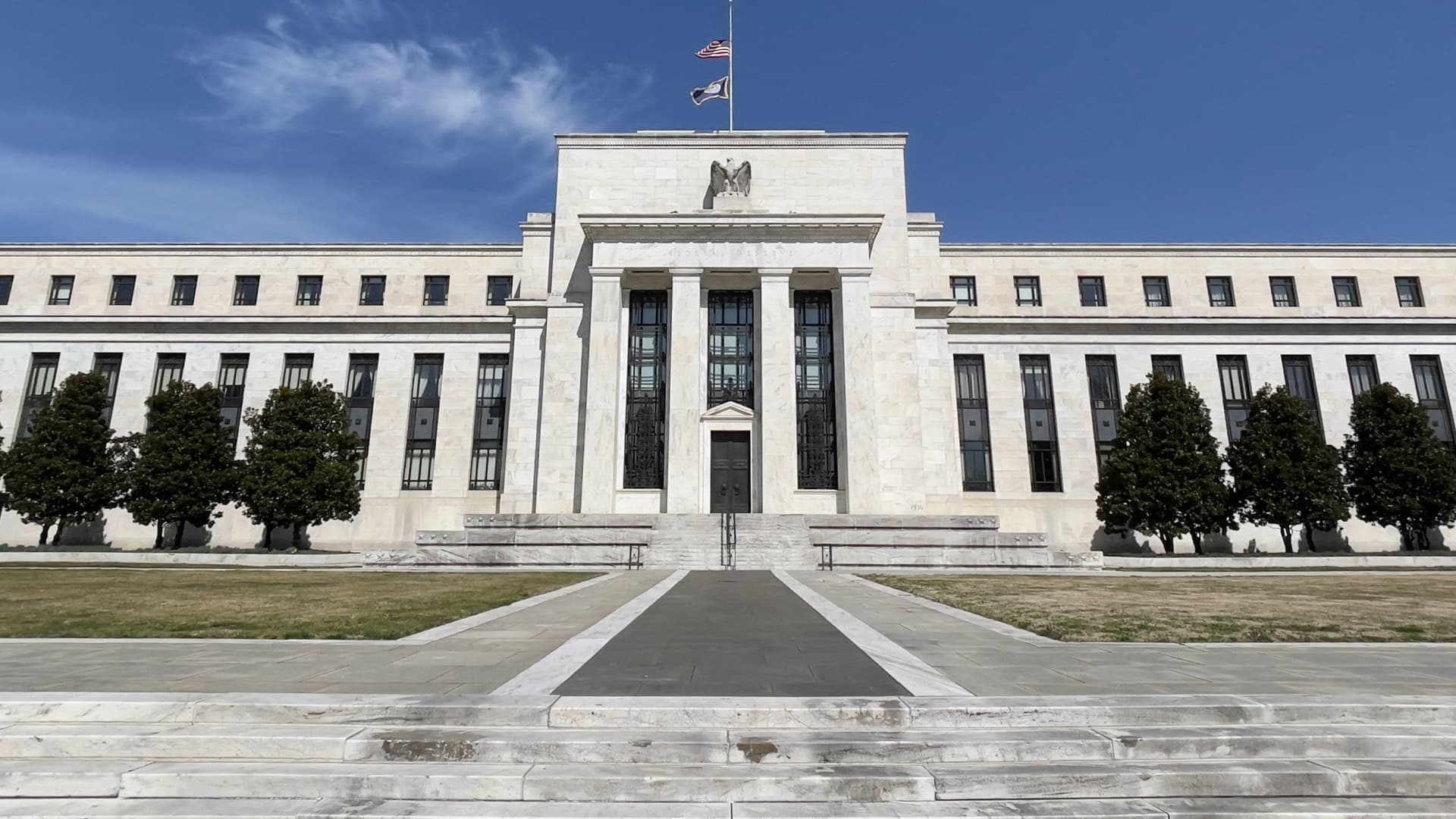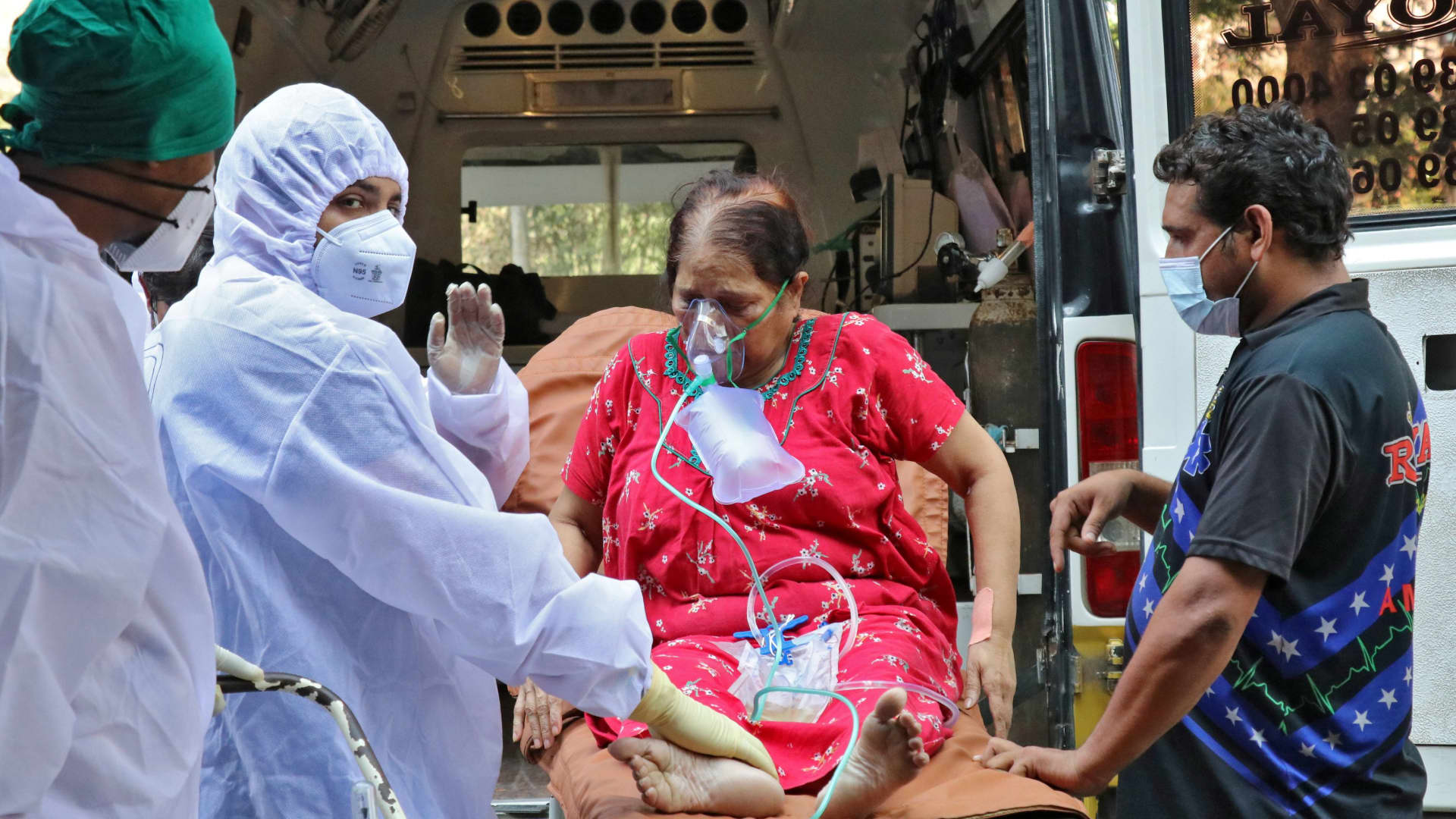
Here are the most important news, trends and analysis that investors need to start their trading day:
- Dow futures turned lower after weak jobs report
- April jobs gain really missed the mark
- Fed warns about potential for 'significant declines' in asset prices
- India reports more than 400,000 new daily cases for the third time in a week
- Peloton sees a $165 million hit due to a recall of its treadmills
1. Dow futures turned lower after weak jobs report
Get top local stories in Southern California delivered to you every morning. >Sign up for NBC LA's News Headlines newsletter.
Dow futures turned negative and the 10-year Treasury yield briefly sank below 1.5% after the government's April employment report came in way below estimates. The economy added just 266,000 nonfarm payrolls last month, the Labor Department said Friday morning. Estimates had called for 1 million additions. The Nasdaq, which has recently moved in the opposite direction of bond yields, was set to open strongly higher.
The Dow Jones Industrial Average on Thursday rose nearly 1% to another record close. A similar gain in the S&P 500 carried that index to within 10 points of last month's record close. The Nasdaq rose 0.4%, breaking a four-session losing streak, but still more than 3.5% from April's record close. Ahead of Friday's open on Wall Street, the tech-heavy Nasdaq was down over 2.3% for the week. The Dow and S&P 500 were up nearly 2% and almost 0.5%, respectively, for the week.
Shares of Pfizer were flat while BioNTech popped 5% in Friday's premarket, after the two companies said they have started the process to file for full approval of their Covid vaccine in the U.S. Full approval would allow the companies to market the two-shot regimen directly to consumers. The FDA granted emergency authorization status in late December.
Money Report
2. April jobs gain really missed the mark

Hiring was a huge letdown in April, with nonfarm payrolls increasing much less than expected and the nation's unemployment rate rising to 6.1% as reopening businesses grapple with an escalating shortage of available workers. March's originally estimated 916,000 new jobs was revised much lower to 770,000, though February saw an strong upward revision to 536,000.
Investors are closely watching these jobs numbers because of the Federal Reserve's pledge to keep its extraordinarily easy monetary policy, including near zero interest rates, in place until the job market heals and inflation starts picking up. However, many traders believe inflation will quickly become troublesome and the Fed might have to rethink its ultra-accommodative stance and make adjustments sooner than it has been forecasting.
3. Fed warns about potential for 'significant declines' in asset prices

Rising asset prices in the stock market and elsewhere are posing increasing threats to the financial system, the Fed warned. In its semiannual Financial Stability Report, the central bank said Thursday danger is lurking should market sentiment change. "High asset prices in part reflect the continued low level of Treasury yields. However, valuations for some assets are elevated relative to historical norms even when using measures that account for Treasury yields," the report warns. "In this setting, asset prices may be vulnerable to significant declines should risk appetite fall."
4. India reports more than 400,000 new daily cases for the third time in a week

Daily new Covid cases in India topped 400,000 for the third time this month as the South Asian country struggles to contain a devastating second wave. Health ministry data released Friday showed 414,188 new Covid infections over a 24-hour period, during which at least 3,915 died from the disease. However, reports of overwhelmed crematoria and cemeteries as well as a growing number of obituaries in newspapers suggest the official figures are undercounting the true death toll. Many localities have tightened Covid mitigation measures even as the Indian government resisted a national lockdown.
5. Peloton sees a $165 million hit due to a recall of its treadmills

Peloton expects its fiscal fourth-quarter sales to take a $165 million hit due to a recall of its treadmills. Shares of Peloton plunged nearly 15% on Wednesday, following the company's reversal in issuing a voluntary recall after one child died and dozens were injured in accidents involving the Tread+ machine. The stock rose 1.4% on Thursday.
Shares jumped nearly 7% in Friday's premarket, the morning after the fitness equipment company reported a fiscal third-quarter revenue surge of 141% to a better-than-expected $1.26 billion. Demand for its cycles, which represent the majority of its business, remained strong. Peloton's adjusted per-share loss of 3 cents in fiscal Q3 was much smaller than estimates.
— Follow all the market action like a pro on CNBC Pro. Get the latest on the pandemic with CNBC's coronavirus coverage.






